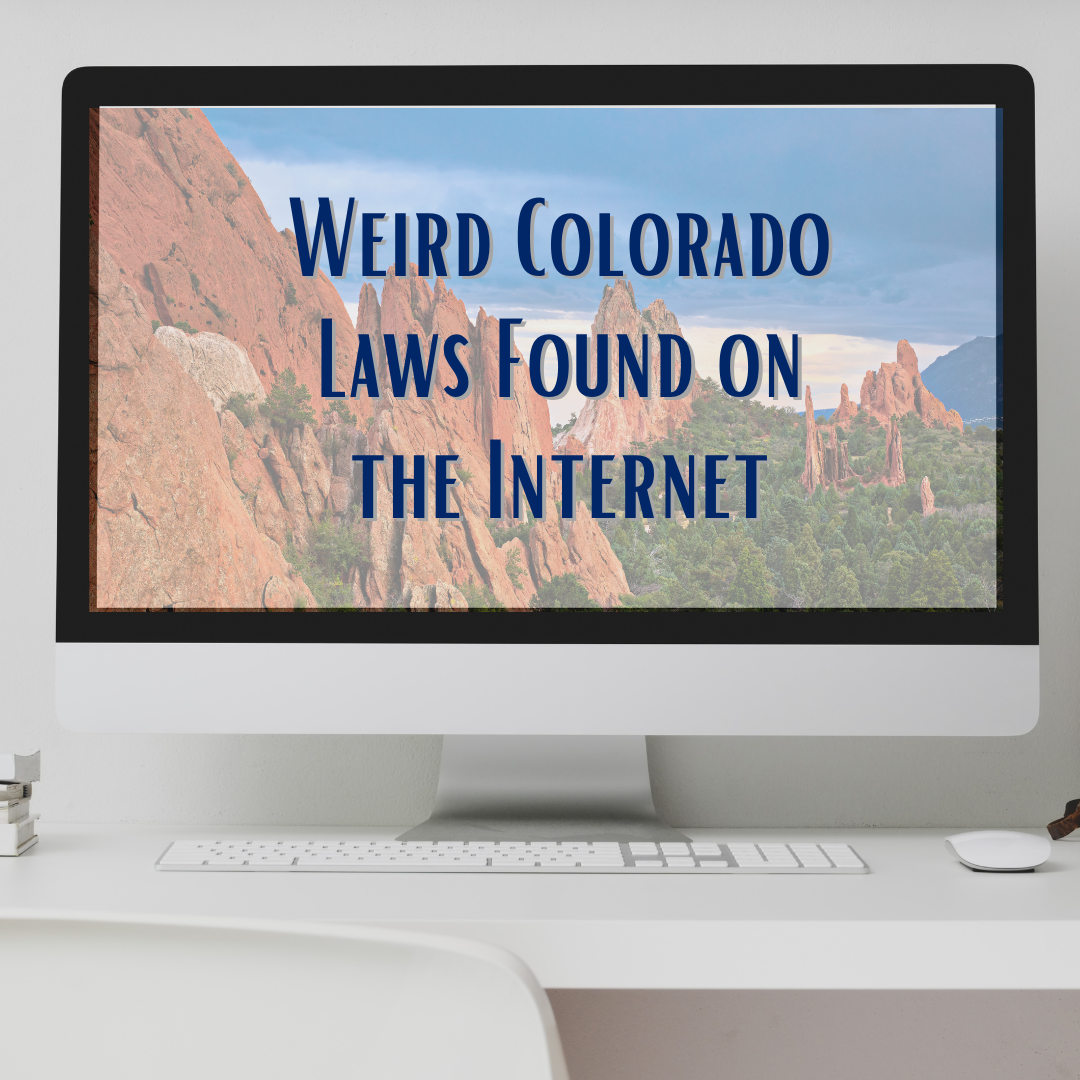(Aspect I: ODD Legal guidelines IN COLORADO)
In courtroom dramas on Television set or in the motion pictures, you will find often a scene exactly where a witness, even following swearing on a stack of Bibles and his lifeless mother’s grave that he will explain to the real truth, the full real truth and nothing at all but the truth of the matter, can take the witness stand and then says something which is not genuine.

On-display, a person of the attorneys leaps to their feet, factors their finger at the witness, and shouts for the full courtroom to hear:
“LIAR!”
In the Point out of Colorado, however, this can by no means come about – there are no “lies” or “liars” in Colorado courts.
In Colorado, as the Colorado Supreme Courtroom wrote in the case of Crider v. People, 186 P.3d 39, 41 (Colo. 2008), “it is inappropriate for a law firm to use any sort of the word ‘lie’ in characterizing for a jury a witness’s testimony or his truthfulness.”
That unique term is banned “for a variety of motives. It is prohibited not only for the reason that it poses a threat of speaking the lawyer’s personal viewpoint about the veracity of a witness and implying that the lawyer is privy to details not in advance of the jury, but also simply for the reason that the phrase ‘lie’ is an inflammatory phrase, likely (whether or not or not essentially created) to evoke solid and destructive psychological reactions from the witness.”
As significantly again as in 1981, the Colorado Supreme Court has mentioned, as they did in the situation of Hughes v. Point out, 437 A. 2d 559, 571 (Colo. 1981), “In our view, ‘liar’ is an epithet to be utilised sparingly in argument to the jury. It is a flashboard more very likely to generate warmth in a contentious courtroom than it is to illuminate the look for for real truth. […] We say this because a witness or a occasion may perhaps be mistaken, uninformed, or faulty in his facts or conclusions in quite a few approaches, and however not be a liar labeling a witness as a ‘liar’ or to argue that he has ‘lied’ is to say a thing very distinct about his testimony.”
“Some terms or analogies by their incredibly nature resonate far more powerfully in the heart and minds of the jury,” the Colorado Supreme Courtroom wrote in the situation of Domingo-Gomez v. People, 125 P.3d 1043 1050 (Colo. 2005). These kinds of words and phrases “evoke sturdy reactions in jurors and acquire them down the path towards a conviction in which the evidence does not always direct. The phrase ‘lie’ is these kinds of a strong expression that it always displays the personalized belief of the speaker. When spoken by the State’s agent in the courtroom, the term ‘lie’ has the risky likely of swaying the jury from their responsibility to determine the accused’s guilt or innocence on the evidence properly offered at trial.”
In other terms, if a lawyer phone calls something a “lie,” it is these kinds of a surprising curse that a jury could not be in a position to get over it, and might convict an in any other case innocent human being, just since they come to feel so strongly about “liars.”
Therefore, no law firm is allowed to ever use any variation of the term “lie” in Colorado courtrooms.
When odd legal guidelines are entertaining to read about, we know that when you are sitting in the courtroom, it is almost never pleasurable or entertaining. The experienced criminal protection group at The Legislation Offices of Steven Rodemer is here to assistance you navigate the prison justice technique and be certain your rights are protected during the system. Speak to us today to ensure you get the pro authorized illustration you are worthy of.



More Stories
Hakeem Jeffries’s historic election as House Democratic leader, explained
White House Says Immunity for MBS Was Unavoidable. Privately, They Weren’t So Sure.
Telephone Anxiety: Millennials Hate Mobile Calls